Bulletproof and beyond
January 1 marks four years since Ido Lazan was shot in a Tel Aviv terrorist attack. He shared his powerful story with The AJN during his recent visit to Australia for ZDVO.
“HE ran away! Find my dog,” Ido Lazan yelled as he lay, bloodied, on the Tel Aviv pavement.
One bullet had hit the main artery of Ido’s leg, the other was lodged in his chest. Bystanders rushed to his side. A stranger used both of his fists to try to stop the bleeding from his groin, another, a doctor by happenstance, put pressure on his chest. Ido fell in and out of consciousness as he was piled into the back of an ambulance, his main concern still the whereabouts of his canine buddy.
“I know I’m dying but find my dog. It is more important. Find King Django!”
Moments earlier, Ido, then 34, met his friend Ariel to celebrate his birthday. Ido’s dog Django was by his side, and together they sat at an outside table of Ha’Simta, a bar on busy Dizengoff Street. They chatted over the froth of Guinness beers. Then, “all hell broke loose”, tells Ido.
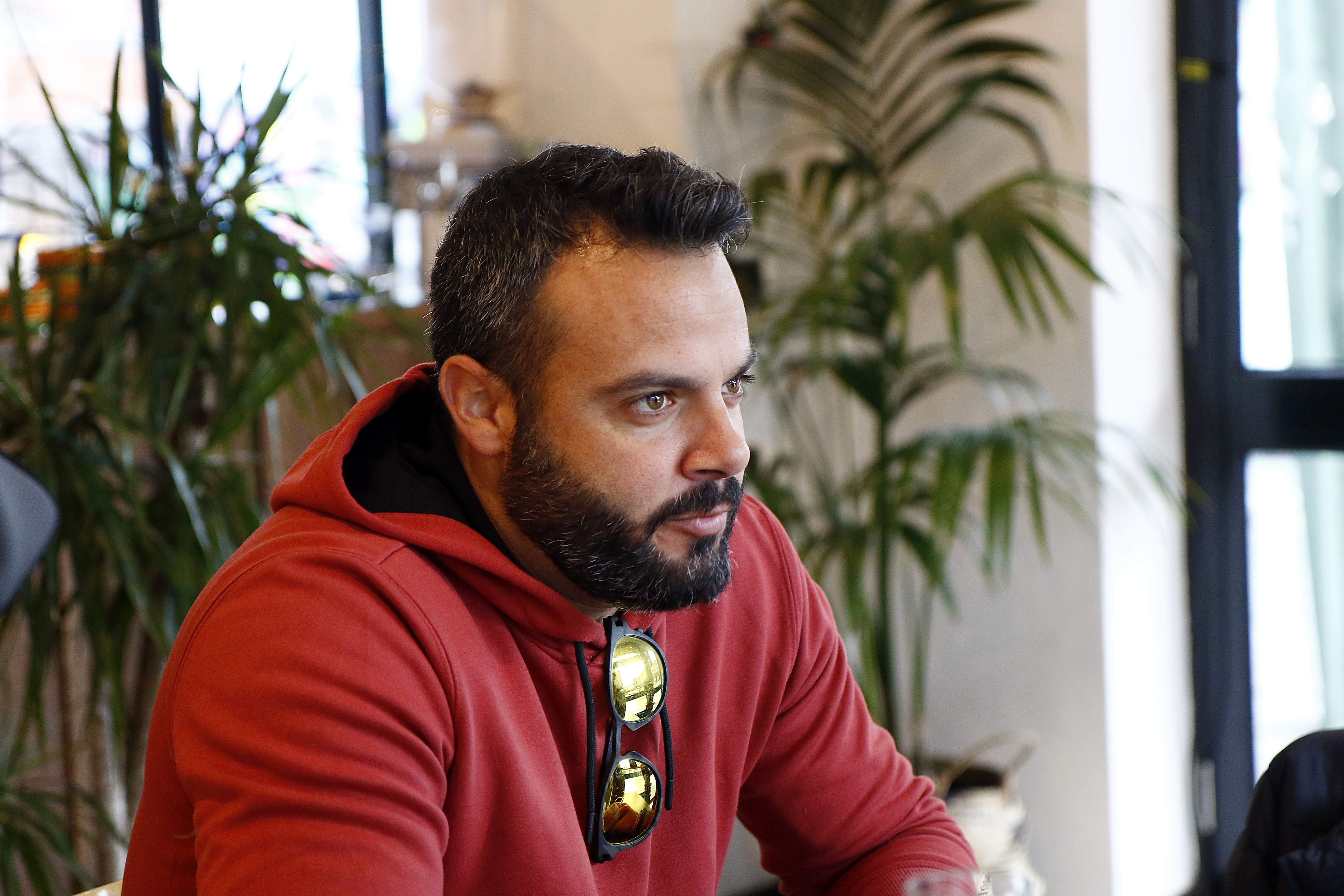
“This terrorist comes out from the store next door, Anise, and he starts shooting with an automatic rifle everywhere.
“He aimed in the direction of the bar, and just started shooting. And the first shot I got was in my chest. It felt like a baseball bat hit me. My instinct was to stand up and start running for some reason, instead of just ducking.”
As gunshots rained down, Ido dropped Django’s lead and ran.
“I was looking to my left and my right, and the terrorist was on my right, five metres from me, and he saw me. He aimed at me, and he shot me again. This time, he hit me in the left groin, right in the main artery, which exploded and I fell down on the road.”
The terrorist was 31-year-old Israeli-Arab Nashat Melhem from Ar’ara in northern Israel. Said to have been inspired by ISIS, that day he shot dead two Israelis in the bar, and shortly after, an Arab-Israeli taxi driver. Seven people were injured.
As Ido screamed for help from the sidewalk, he could feel himself begin to fade away.
“I totally felt like I was dying which is a scary feeling. And you hear the gun shots and you don’t know if he is going to come and finish the job or what is going to happen.”

This was far from what Ido had imagined for 2016. It was meant to be his year. He was on the cusp of a new career, a fresh start.
Just months before the attack, Ido found himself in his apartment on a Saturday night, dreading going to work the next day. He held a position in a top advertising firm.
“I had this storm in my heart that I really didn’t want to go. It was a big day for me, because that was when I realised what I want to do,” says Ido.
Realising that he was living a life in constant count down to the next weekend, Ido called his boss and quit his job. He then asked himself two questions: What do you love to do? What are you good at?
The answer was sport – despite not playing it for the past 10 years. Ido remembered his passion for it from younger years, and knew that he then “needed to get back in shape, and make it a profession”.

First he got fit, then he studied to become a personal trainer and crossfit trainer. Fifteen kilograms lighter, by October 2015, he started working in his new career, and was doing what he loved.
Two months later on his 34th birthday, and just five days before the attack, Ido had a big party.
“And we had this l’chaim moment: Here’s to 2016! This is totally going to be my year, the best year of my life,” Ido recounted.
“But you know what they say – Man plans and God laughs…”
When Ido awoke in Ichilov Hospital, five days after the attack, his left leg was paralysed, there was nerve and blood vessel damage and he had a broken hip bone. All of Ido’s internal organs had been badly hurt which resulted in the placement of one metre of mesh in his stomach. There were tubes from his nose and throat, and he could barely move. Ido’s fingers were so swollen that a ring he was wearing was pushed to his fingertip. If he needed attention, he would tap the ring against the side of the bed. His mother, father and older brother stayed with him continuously.
“At the time, I had no idea what was going on. I remembered what happened, but you see double, you can’t breathe, you can’t talk, you can’t move, so it is like a bad dream,” explains Ido.

But the hardest thing, he reflects, was the sense of hopelessness he felt as a grown man.
“Imagine not being able to move at all, and every single need that you have has to be taken care of by someone else, so you’re helpless?”
During that time, the small steps forward were “unbelievably amazing”, like when he took his first sip of water from a syringe, and when the breathing tube was finally removed.
But Ido’s leg remained paralysed.
“I had just celebrated becoming a fitness trainer, so the timing, oh my God. I don’t think there is a good time to be shot, but this was the worst.”
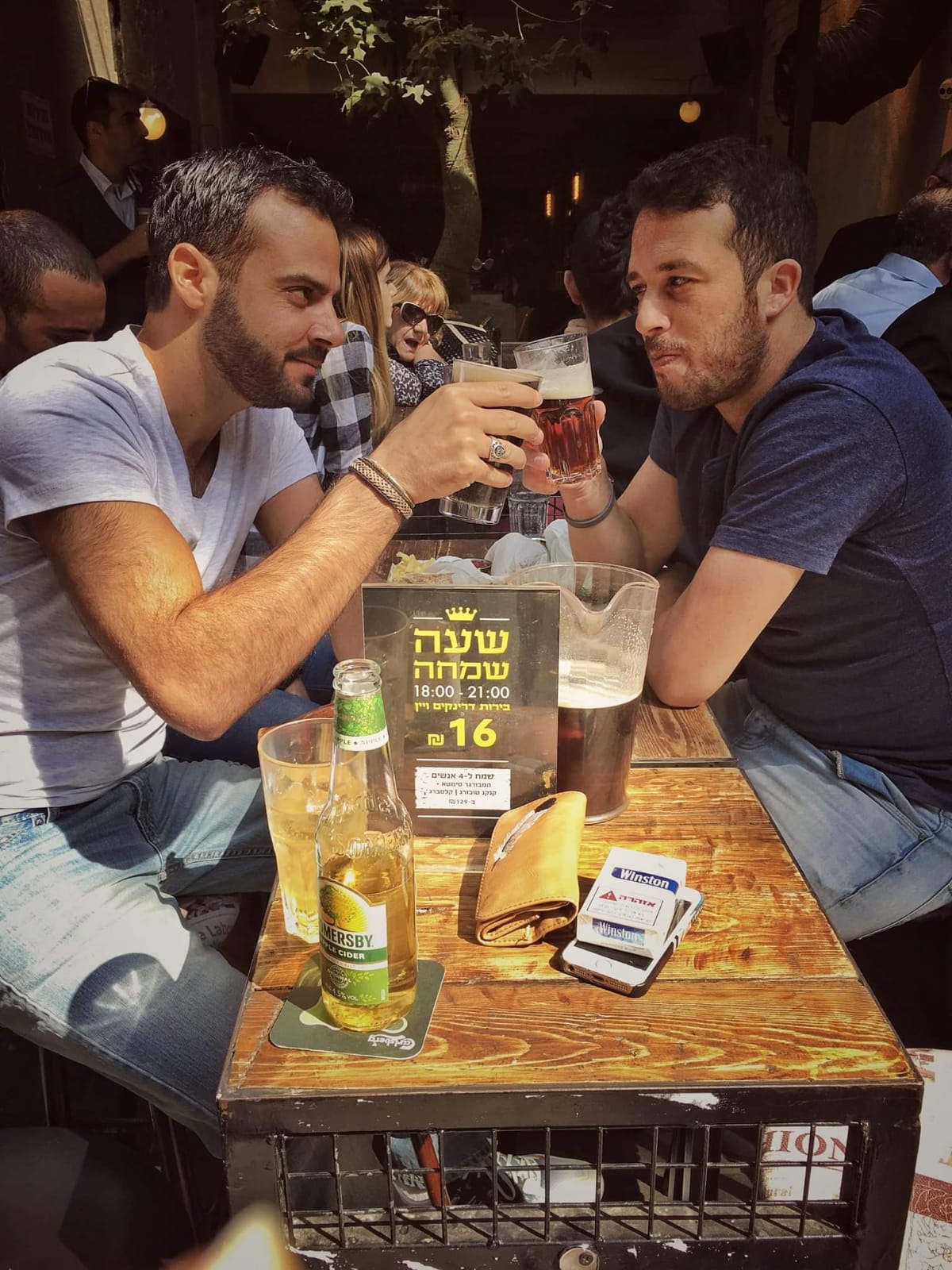
After a month and a half of hospital care, Ido made it to the rehabilitation centre. Many friends came to visit, including Ariel. Grappling with their new reality, they talked of the many “what ifs”. What if they arrived at that bar five minutes later? What if they sat in different seats? Then, came the question of what next?
“What if? It doesn’t matter. We figured out that I’m going to find a way to do what I love. So, this is what I want to do, and I chose this, and regardless of my leg, I’m going to find a way.”
IT was not long after that Ido received a visit from two women from Zahal Disabled Veterans Organisation (ZDVO) Beit Halochem, the organisation that is responsible for supporting the care and rehabilitation of Israel’s 51,000 injured soldiers and victims of terror, and their families.
The six ZDVO centres across Israel offer unique rehabilitation, sports and recreation centres and an array of social and cultural programs. Ido decided to join, and was struck by the many others “who probably knew what it feels like to go through this … It is a connection you share with people you don’t know, and maybe you will never be able to actually explain”.

After another month of rehabilitation, Ido was well enough to return home, to his parents’ house initially.
One of the first things he did was call Ariel, “And I said, listen, we still need to have that birthday beer.”
Together, they went back to Ha’Simta – and they sat at the exact same table.
“It was easier than I thought. I was in a mental state where I was like an animal and nothing could touch me. I was stronger than all of that.
“I realised this move was a very important one, not preventing going to the place where it happened. Like getting back on the bike,” says Ido.
His spirit of defiance strengthened, and two weeks later, Ido had moved back to his own apartment – on the fourth floor – with no lift.
“It was kind of challenging,” he concedes. “It took me 10 minutes to go up, and 10 minutes to go down, but I didn’t want the fact that I am handicapped with a walking cane to adjust my life. I learnt how to keep my normal life that I had before with this new challenge.”
Challenge was not something Ido shied away from. Five months later, he received a phone call from a friend. Remembering Ido’s pre-attack aspirations to one day open a gym, his friend believed he had found the perfect property for rent.
“I was like, are you serious? Now?”
The friend insisted, and took him straight to the location. It was directly across the road from Ha’Simta.
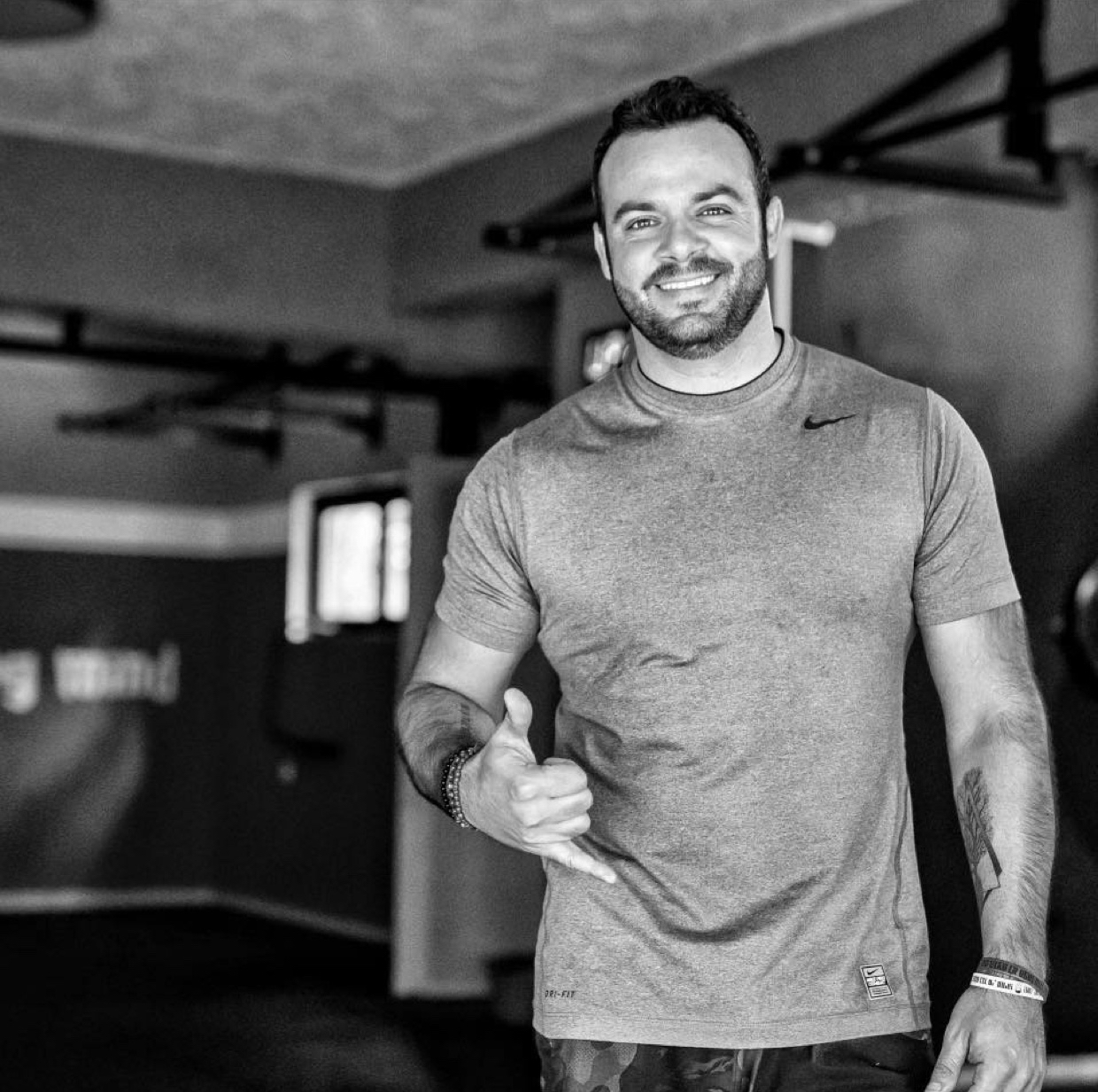
“It was this little small place, and it is really not suitable to be a gym … But I don’t know, the location, the karma, the whatever, I just had to take it.”
So, with a walking cane in hand, Ido signed the contract.
“I had no idea what I’m doing, but after two months, I opened it. In July 2016, I opened this space,” and in a nod to his journey, Ido named the gym Bulletproof.
At the same time, he was still continuing with his physiotherapy at Beit Halochem in Tel Aviv, and his leg gradually strengthened, “but it is still not perfect – it never will be”. Irrespectively, Ido did not let his injuries slow him down, and when asked if he would assist in building a Crossfit gym in Beit Halochem, he eagerly agreed.
“I’m like, how am I going to train these people, because Crossfit is like a group sport and they can’t do the same thing, so you need to adjust everything, which is a great challenge.
“But when you start moving them, and they start doing something they haven’t done in a long time, slowly you start to see they are regaining their confidence in their bodies, their abilities and what they can.”
Ido trained people like 20-year-old Noam, who only has one arm, but wants to do a pull up – and the gym customises the exercise to make that possible.
“It was mind-blowing to see the mental strength in these people. This was probably the best part of my rehab. Because being able to help others, helps you. And it’s kind of amazing.”
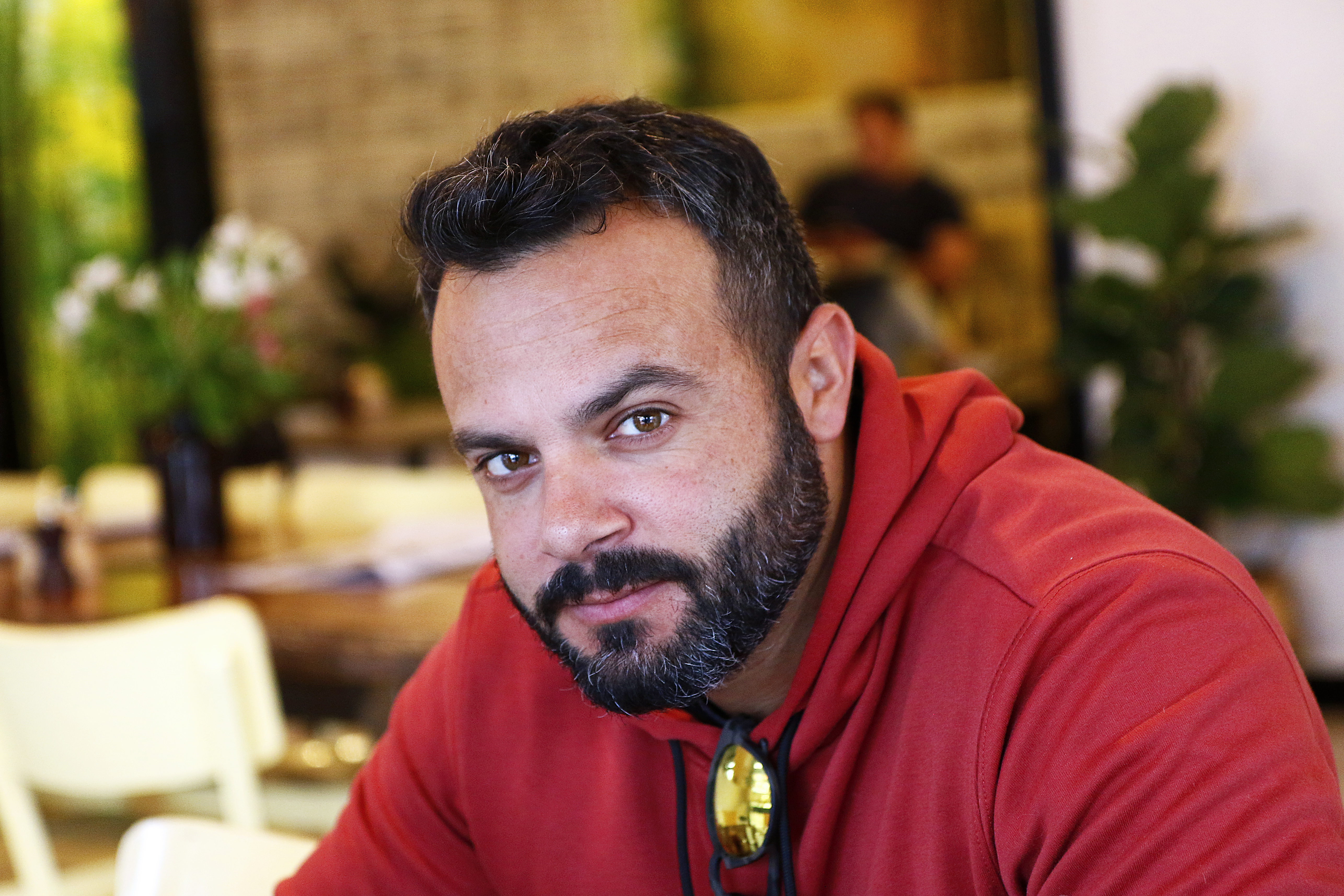
Last year, Ido also helped facilitate the friendly competition between 60 veterans of the British Army who had been injured in Afghanistan or Iraq, with 60 Israelis of ZDVO. Despite the difference in nationality and language, the veterans all connected in a powerful way, says Ido.
“And Post-Traumatic Stress Disorder (PTSD) is the same PTSD.”
Ido first realised that he was suffering from PTSD about six months after the attack. He was riding his electric bicycle, when he received a panicked call from a friend, checking on his whereabouts. Another terror attack had taken place, this time a shooting at Tel Aviv’s Sarona Market. Ido started shaking, and quickly rode to the nearest place where he would find a friend, at a bar a couple of minutes away.
“I get in, and he looks at me, and says, what happened? I can’t speak, and I’m shaking, and my pulse, and I’m sweating, and I start crying …
“That’s when I realised I’m starting to experience the mental part of what happened.”
The next day, Ido called NATAL, Israel’s Trauma and Resiliency Centre. To this day, Ido still suffers from PTSD.
“You have no idea when it is going to come, what will trigger it. And it can come without triggers. Then you are waiting for it to come, and living with this raises the stress levels of your day to day life.”
Ido Lazan, our guest from Beit Halochem in Israel, has been captivating audiences in Sydney and Melbourne with his inspirational story of survival and courage.
פורסם על ידי ZDVO Beit Halochem Australia ב- יום רביעי, 28 באוגוסט 2019
WHILE Ido has been faced with countless physical and mental battles to overcome in the past four years, he has learnt many lessons on the way.
“And I found out that I am a bit mentally stronger than I ever thought I am.”
He credits his family and friends and a good sense of black humour for getting him through.
And a very special four-legged friend.
While Ido was lying unconscious in hospital immediately after the attack, his brother posted on Facebook for people to help find Django.
“They told me that like half of Tel Aviv went out on the streets and was yelling for him,” says Ido.
“And they actually found him!”
The duo were reunited when Ido was released from hospital.
“It was a really happy moment. Django was so cautious. They covered my leg with all these blankets so he wouldn’t hurt me. He came to me slowly, wagged his tail a little, then started licking me.
“Oh, I love that dog.”
So good to have Ido Lazan in Sydney sharing his powerful story of survival.
פורסם על ידי ZDVO Beit Halochem Australia ב- יום רביעי, 21 באוגוסט 2019
The past four years have also taught Ido that it’s ok not to be “the macho guy”.
“Someone asked me recently, do you feel strong enough not to ask for help, and I said, No, I feel strong enough to ask for help.
“I’m not scared, to get support from others. I did it … and I just keep going ever since.”
To find out how you can get involved or donate to ZDVO Beit Halochem Australia, visit zdvo.com or call (02) 8332 2614.
Get The AJN Newsletter by email and never miss our top stories Free Sign Up

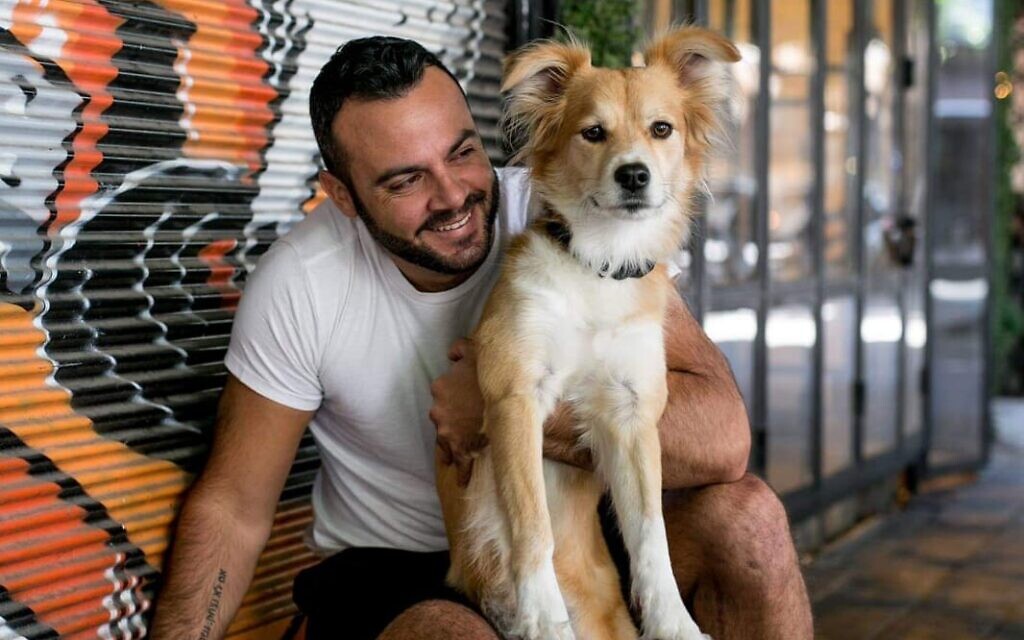
comments